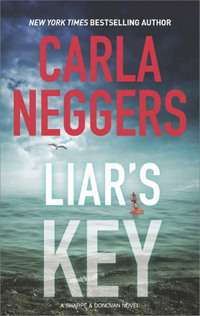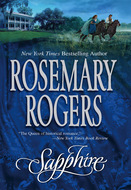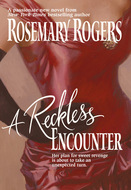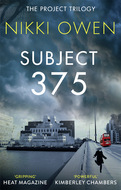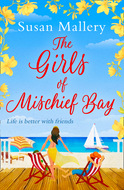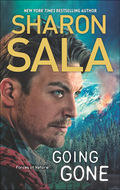Kitap dosya olarak indirilemez ancak uygulamamız üzerinden veya online olarak web sitemizden okunabilir.
Kitabı oku: «Liar's Key»
An FBI legend, a mysterious antiquities specialist and a brazen art thief draw top FBI agents Emma Sharpe and Colin Donovan into a complex web of blackmail, greed and murder in the eagerly awaited new novel in the highly acclaimed Sharpe & Donovan series
Emma Sharpe is suspicious when retired Special Agent Gordon Wheelock, a legend in FBI art crimes, drops by her Boston office for a visit. Gordy says he’s heard rumors about stolen ancient mosaics. Emma, an art crimes specialist herself, won’t discuss the rumors. Especially since they involve Oliver York, an unrepentant English art thief. Gordy and Emma’s grandfather, a renowned private art detective, chased Oliver for a decade. Gordy knows Wendell Sharpe didn’t give him everything he had on the thief. Even now, Oliver will never be prosecuted.
When a shocking death occurs, Emma is drawn into the investigation. The evidence points to a deadly conspiracy between Wendell and Oliver, and Emma’s fiancé, deep cover agent Colin Donovan, knows he can’t stay out of this one. He also knows there will be questions about Emma’s role and where her loyalties lie.
From Boston to Maine to Ireland, Emma and Colin track a dangerous killer as the lives of their family and friends are at stake. With the help of their friend, Irish priest Finian Bracken, and Emma’s brother, Lucas, the Sharpes and Donovans must band together to stop a killer.
No one creates exciting, action-packed romantic suspense and international intrigue like New York Times bestselling author Carla Neggers.
Liar’s Key
Carla Neggers

For my mother, again and always with thanks and love
Contents
Cover
Back Cover Text
Title Page
Dedication
Chapter 1
Chapter 2
Chapter 3
Chapter 4
Chapter 5
Chapter 6
Chapter 7
Chapter 8
Chapter 9
Chapter 10
Chapter 11
Chapter 12
Chapter 13
Chapter 14
Chapter 15
Chapter 16
Chapter 17
Chapter 18
Chapter 19
Chapter 20
Chapter 21
Chapter 22
Chapter 23
Chapter 24
Chapter 25
Chapter 26
Chapter 27
AUTHOR’S NOTE
Extract
Copyright
1
Boston, Massachusetts
Gordy Wheelock washed the dried blood off his face and checked the damage in the mirror. Not too bad. The blood was from a swollen scrape behind his left ear, at his hairline. It wouldn’t be visible if he combed his hair right and wore a collared shirt and sport coat.
For the life of him, he couldn’t remember what had happened.
He stared at his reflection. Gray stubble, bags under his eyes, flab under his chin, hair completely gray, what was left of it, anyway. He was still in the slacks he’d worn on yesterday’s flight from London.
Damn. He looked like an old, out-of-shape has-been.
He hated that.
He picked up his bloody shirt off the bathroom floor. His left knee ached. It felt swollen. He didn’t remember any problems with it when he’d checked into the Boston waterfront hotel around seven last night. He’d had a drink and gone out to get some air and have a cigarette, never mind that he’d quit smoking decades ago.
That much he remembered clearly. After that...
He grimaced and limped into the bedroom, where he’d awakened on the floor, in a major stupor, fifteen minutes ago. He tossed his shirt on the untouched bed, then walked over to the windows and pulled open the drapes. Had he shut them after he’d fallen—or hadn’t he fallen? Had he been clocked? Damn. He didn’t remember, but he figured he must have shut the drapes himself. The hotel wasn’t bad but it didn’t have a turndown service.
Cold water and now the morning sunlight didn’t help him separate memory and nightmare, but blood, pain and a palpable sense of fear and foreboding suggested that what was stirring in his aching head was more reality than the dregs of a bad dream.
He made coffee in the Keurig machine and dug a Kit Kat out of the minibar.
“Shirt. I need a clean shirt.”
He saw his overnight bag by the door. He remembered dropping it off in the room before heading down to the bar off the lobby.
He tore open the candy. Coffee and chocolate would help him wake up, come to—both.
They did, and he didn’t like it.
This is your only warning. Back off.
A ragged low voice, maybe male, maybe female. Who knew these days?
A gun in the ribs.
Felt like a gun, anyway. Gordy didn’t know for a fact what it had been.
A pro? Not sure about that, either, but whoever it had been had managed to deliver the warning and stay out of Gordy’s line of vision. Probably would have taken less skill just to beat him over the head.
Gordy was disgusted with himself. He was rusty. Back in the day, he’d have had his attacker’s ass in the harbor.
He rubbed his lower back and discovered a bruise where he’d been jabbed. Given his fuzzy head and general aches and pains, he hadn’t noticed until now.
His head throbbed. He hadn’t been shot, grazed by a bullet, anything like that.
“I fell.”
He heard the disdain in his voice. His attacker had come at him from behind at the top of the stone steps near the hotel, stuck a gun, club or whatever in his ribs, grunted the warning and given him a good shove. It’d been dark. Gordy had stumbled and hit his head and banged his knee on the steps.
Never had a chance to light his cigarette.
It was all coming back to him.
He drank his coffee and ate his candy bar, forcing himself to stay loose, relaxed. He’d done that last night with his attacker, too. He hadn’t wanted to fight, risk serious injury, call attention to himself, have to explain to the police—all of which his assailant had clearly known and counted on.
Gordy figured if he was supposed to have come out of this thing dead, he’d be dead.
The warning meant he wasn’t grasping at straws. He was on to something.
He tossed the cup and candy wrapper into the trash. He’d have to tough out the pain from his bruises. He got a collared shirt out of his bag. He’d opted against a suit and tie, but he did have a navy sport coat. He wouldn’t be dressed as if he were off to play golf, at least.
He hadn’t planned to change his slacks despite having slept in them, but he noticed blood on his right hip, visible and obvious against the light gray flannel. He must have touched the blood on his face and then his pants. He dug out fresh trousers. He saw he had a scrape on his right hand, probably from breaking his fall, but it didn’t bother him.
Getting dressed hurt. Walking would hurt, too. Hell, thinking hurt. The attack hadn’t been a coincidence. He’d asked for it, sticking his nose where it didn’t belong. But who all knew he was in Boston?
Once he was dressed, he checked his reflection in the mirror above the small desk in the corner. Better. He looked as if he’d had a bad night, but he didn’t see any visible sign of blood or bruises.
He took the elevator three floors down to the lobby. After a moment’s deliberation, he checked out and left his bag with the bellman, a different one from last night.
He went outside, the sunlight making his head hurt worse. It was a warm spring morning, at least by Boston standards. He walked past the wharf where the New England Aquarium was located, a crowd assembled at the entrance. Parents, toddlers, students and teachers on spring field trips. A few retirees. Not many. Gordy figured he sort of blended in and people could think he was meeting his grandkids, but he’d chosen his hotel for its proximity to his ten o’clock meeting with the FBI. A little late to cover his tracks, anyway. Whoever had attacked him had obviously known where to find him. Followed him from the airport, then waited for him to come out for a smoke? What if he hadn’t? Maybe his attacker had nailed the wrong guy. But Gordy didn’t think so.
He dug out the pack of cigarettes he’d bought after arriving at Logan, tapped one out and lit it with the disposable lighter he’d bought at the same time. If he hadn’t been sneaking a cigarette, would he have been blindsided last night?
Moot point now.
He took two puffs and tossed the cigarette onto the sidewalk. He ground it out under his foot, scooped up the butt and pitched it into a trash can. Never mind someone assaulting him. If the local cops saw him litter, they’d be all over him.
Gordy chuckled to himself, feeling better. Now that he was awake and the caffeine and chocolate were taking effect, the warning and his tumble last night had fired up his adrenaline. He was tuned in, confident he was back in the game. Almost a year playing golf and hanging out with his wife and the kids and grandkids in North Carolina hadn’t softened him up too much. He wouldn’t be caught off guard another time.
A chilly gust blew off the harbor. A stab of pain seemed to go through his eyeball, but he shook it off. Hell, he might even survive May in Boston. He thought he’d never get used to living in North Carolina again, but here he was, shivering.
He glanced at his watch. He’d have to hoof it not to be late for his meeting with the FBI, specifically Special Agent Emma Sharpe.
The hell with that.
He’d take his time. He was an FBI legend. Emma could wait.
2
At first Emma didn’t recognize the man standing in her office doorway. Gordy Wheelock? Had to be. People didn’t just walk into her small FBI building on the Boston waterfront, and she was expecting him. He’d called her last night to set up their meeting. “Ten o’clock sharp, Emma. Funny, huh? Sharp, Emma. Emma Sharpe. Ha.”
That was Gordy, always with the lame humor.
He rubbed the back of his neck, looking pained. “I know. I look like Yank’s drunken uncle these days. Sorry. I should have warned you.”
Yank—Matt Yankowski—was the senior agent in charge of HIT, the specialized FBI team of which Emma was a handpicked member. She doubted he had a drunken uncle.
Yank and Gordy weren’t friends.
“No problem,” Emma said. “Come in, please. It’s good to see you.”
He stepped into her small office. She did her best to hide her shock at seeing him. Gordon Wheelock was an FBI legend who’d taken the investigation of art crimes to a new level during his thirty-year career, but he didn’t look like a legend this morning. He had dark circles and puffy bags under his eyes, and he’d put on weight—at least fifteen pounds. His hair was sparse and totally gray now, not the salt-and-pepper of just a year ago when she’d flown back to DC to attend his retirement party. He wore a collared ice-blue shirt without a tie, a navy sport jacket, tan trousers and scuffed leather walking shoes. The clothes were wrinkled, as if he’d pulled them out of a suitcase or a laundry basket.
Before joining HIT and moving to Boston last March, Emma had worked with Gordy in Washington for several months. Like her, his area of expertise was art crimes. He understood as a law enforcement professional the intersection of major art crimes with other major crimes—embezzlement, extortion, kidnapping, money laundering, drug smuggling, illegal weapons trafficking, murder and even terrorism. He didn’t have a background in art but considered that a strength. She had a degree in art history, and she was a Sharpe—her grandfather was a world-renowned private art detective. Matt Yankowski had urged her to join the FBI and then had chosen her for HIT specifically because of her expertise, but Gordy had warned her not to get distracted by her knowledge and interests. We don’t investigate protocols, controversies and cool stuff going on in the art world, Agent Sharpe. We investigate potential and actual federal crimes.
Word was he’d been ready to retire, but Emma had never asked him for his reasons.
He nodded to the papers, index cards and Post-it notes she’d arranged on the inexpensive sofa against the wall opposite her desk. “Anything interesting?”
“No, unfortunately. I’m sorting through the contents of some physical files.”
“Anything interesting, you wouldn’t let me near it.”
She forced a smile. She noticed a nick on his jaw where he must have cut himself shaving. He’d always been so crisp and professional when she’d worked with him.
He gave her a frank once-over. She was dressed professionally in slim-cut dark pants and a cream-colored shirt, with a lightweight leather jacket hanging on a peg behind the door. She had good walking shoes, no visible sign of wear. Her hair, fair and shoulder-length, was neatly pulled back. “You look good, Emma. Kick-ass and pretty as a picture.” He grinned. “You’re blushing. It’s okay. I can say whatever I want now that I’m retired.”
“One of the perks, I guess. Did you just get into town?”
“Last night. I flew in from London. I used to fly all the time, all over the country—all over the world. Jet lag never bothered me. These days a pop fly from London to Boston knocks me on my ass.”
“What were you doing in London?”
“Whim.”
It was obviously an incomplete answer, but he didn’t seem to care. She decided not to push him. “Did your wife go with you?”
He shook his head. “Joan’s home in North Carolina with the gang. Our youngest is having another baby. We have four grandkids now. Two boys, two girls. This next one will tip the scales back to the girls. Joan’s excited. Loves babies.”
“That’s great, Gordy. Congratulations.” Emma paused, a hand on the back of her desk chair. “If this is a personal visit, why don’t we wait and have lunch?”
“It’s not a personal visit, but I’m not going to keep you.”
“Would you like to sit down?”
“Nah. I’ll stand. Sciatica acted up on the flight.” He walked over to her one window. The main offices, including hers, were on the second floor of a former warehouse, one of many rescued buildings of Boston’s waterfront past. “Alley view. I bet Yank has a harbor view.”
He did, but Emma made no comment.
“Security’s tight here but it’s not a fortress,” Gordy added. “The world’s changed since I broke into my first sweat at the academy.”
“You had an amazing career, Gordy.” Emma sat on her desk chair, swiveling to face him. “What brings you to Boston?”
“I’m on my way to Maine for the open house at the new Sharpe Fine Art Recovery offices on Saturday. I’m invited. That wasn’t your doing?”
“No, it wasn’t. I’m not part of the business. You know that.”
Founded sixty years ago by her grandfather, Sharpe Fine Art Recovery was relaunching itself under the leadership of her older brother, Lucas. Although still relatively small, the business had grown since Wendell Sharpe had set up his first office in his home in Heron’s Cove on the southern Maine coast. He’d been a young museum security guard, following his interests, hoping for the best. Now he was semiretired, living in Dublin since his wife’s untimely death fifteen years ago. Emma knew Lucas had never expected to take the helm so young, or on his own, but he’d taken to the work—or at least he was good at it, dedicated, tireless.
Gordy glanced back at her, a touch of the no-nonsense Agent Wheelock she’d known in his incisive look. “Any regrets about joining the FBI instead of the family business?”
“No. Gordy...”
“A touch of impatience. I like that. I don’t intimidate you anymore.”
She didn’t respond. He’d never intimidated her, but she’d always respected him. In his mind, the two often went together, and either or both could be used as leverage to get what he wanted. Answers, cooperation, his way.
She tilted back in her chair. “Let’s do this. You talk. I listen. Okay?”
He moved away from the window but didn’t sit. “Sure thing. I stopped in at a high-class tea party in London on Sunday. Champagne, chocolate, scones, loose-leaf tea. It was at Claridge’s. Damn fine hotel. I didn’t stay there—too pricey for my wallet. The party was in celebration of the opening of a show at the Victoria and Albert Museum featuring art and artifacts from the late antiquity period.” He paused. “How’d I do? Pretty good, huh?”
Emma didn’t buy his act. “As always.”
“I’ve picked up a few tidbits. Late antiquity bridges the classical era and the Middle Ages, around the time the proverbial shit hit the fan with the Roman Empire, at least in the west. It lasted from the fourth century to the end of the sixth century. That’s AD, or CE, as we say these days. But you know all this.”
“It’s a fascinating era.”
“I guess so. The party was relatively small, maybe forty people.”
“How did you know about it?”
“I still have contacts in London,” he said. “Getting the invitation to the Sharpe open house stirred me up, I guess. I’d hoped to go out on a high note and I went out on a dead end. That’s the way I looked at it. Anyway, I’m at this London tea party, and no sooner did I help myself to fancy tea than lo and behold, who do I see? Want to guess, Emma?”
“You go ahead, Gordy.”
He grinned at her. “I hope that’s my training you’re putting to use. I ran into an MI5 agent I know, a guy as knowledgeable as anyone in law enforcement and intelligence on the illegal antiquities trade and its connections to terrorism and terrorist funding.”
Emma sat straight. Gordy had her interest now. “Did you speak with this agent?” she asked.
“Sort of. He marched over to me and told me to drink my tea and then pack my bags and head home. I told him I only had one bag. He laughed.”
“Most people appreciate your sense of humor.”
“Yeah, right. More like he humored the old fart who doesn’t know enough to stay home and play golf. He wouldn’t tell me why he was sniffing around at a fancy London party—denied that’s what he was doing.” Gordy settled back on his heels and narrowed his gaze on Emma. “I thought you might know what his interest was.”
“Why would I know?”
“Because your pal Oliver York was there, too.”
And there it is. Emma remained very still. “Keep going.”
“English mythologist. A wealthy loner with a tragic past. He witnessed his parents’ murder at their London apartment when he was eight years old. The killers kidnapped him, but he escaped. They’re still at large thirty years later.” Gordy’s voice wasn’t without compassion. “Awful business.”
“Yes.”
“How long have you known York?” Gordy asked.
“Not long. Gordy—”
He held up a hand. “It’s okay. I don’t know anything that wasn’t in the papers. He got mixed up in an investigation into a private security firm this winter. You almost got killed. You already knew him by then, though, didn’t you?”
“Sort of. Keep talking.”
Gordy paused, studying her.
“Is Oliver York working with MI5, Emma?”
“Why do you ask?”
“Instinct. The MI5 guy is a real bastard. If he’s got York by the short hairs for some reason...well, it’s no wonder York is doing MI5’s bidding. But what could British intelligence have on a lonely mythologist?”
Tons, Emma thought, but she didn’t respond to Gordy’s question. Given his experience as a federal agent, he would know she couldn’t. It wasn’t that she didn’t want to. For a decade, he had chased a serial thief who’d broken into museums, businesses and private homes in a dozen different cities in Europe and the US, making off with a fortune in artwork. Wendell Sharpe, Emma’s grandfather, had also hunted for the thief, who had especially enjoyed taunting the world-renowned art detective. Last fall, while on an unrelated case, Emma had helped identify the thief as eccentric English mythologist Oliver York. Oliver had never admitted his guilt, and he would never face arrest and prosecution for any of his brazen heists—in part because of lack of evidence, but mainly because he’d agreed to help the United Kingdom’s Security Service, popularly known as MI5.
“I guess I wouldn’t answer that question, either,” Gordy said. “Oliver York’s London apartment—the same one where he witnessed his parents’ murder—is a short distance from Claridge’s. He also owns a farm in the Cotswolds. Again, though, I’m telling you something you already know, since he’s your pal.”
“Oliver isn’t my pal.”
“Is he one of your grandfather’s eccentric pals?”
“You’d have to ask him. Did you speak with Oliver at the party on Sunday?”
“No, I didn’t. He saw me and took off in the opposite direction. Coincidence, maybe.”
Emma doubted it. “What else, Gordy? I can’t get worked up about MI5 and an English mythologist showing up at a high-end London party.”
“Your parents were there.”
Now this was news, Emma thought, containing any reaction. She could see he was gauging her response as the experienced agent he was. As a member of HIT, short for High-Impact Target, she worked on investigations focusing on elusive criminals with virtually unlimited resources. But she had only a little over four years on the job. Gordy, retired just a year, had decades.
“I haven’t talked with them in a few days,” she said.
“We said a quick hello while the MI5 agent was looking daggers at me. They’re living in London now, I understand. It’s temporary?”
“A year. That’s what they say, at least. The idea was that a dramatic change of scenery would help my father with his chronic pain.”
Gordy winced. “Terrible. A simple fall on the ice and his life is changed forever. Your brother had to pick up the reins of the family business sooner than he expected. I hear old Wendell is retiring, but I’ll believe it when I see it.”
Emma got to her feet. “Gordy, if you’re here because you want me to give you information, you’re wasting your time. I appreciate any information you want to give me, but it’s a one-way street.”
“Yeah. I get it.” He picked up an index card that had fallen onto the floor and set it back on the sofa. “You heard Alessandro Pearson died about two weeks ago? Funeral was a week ago Tuesday. He had a heart attack and fell down the stairs near his apartment. Heart attack is what killed him, though. He was eighty-eight. He had a good run.”
Emma nodded. “Yes, I heard.”
“Old Wendell was at the funeral. I didn’t realize they were friends.”
“He consulted with Alessandro a few times.”
“Archaeologist specializing in ancient mosaics. I thought your grandfather steered clear of antiquities.”
“He does these days. Look, it seems you should be talking to him instead of me.”
“Relax. I’m just curious. I’m at a party celebrating an antiquities show with MI5, this Oliver York character, your parents and a few other people, and everyone’s buzzing about Alessandro Pearson’s death.”
“He was a respected expert in antiquities.”
“Know anything about ancient mosaics stolen recently in London, Emma?”
It was a calculated blurt. Despite his disheveled appearance and obvious fatigue and aches and pains, Gordy had clearly come to this meeting prepared. He watched her closely.
“No,” she said. “What do you know?”
“Not much. I overheard rumors at the tea party. Word is several sixth-century Byzantine Christian mosaics, possibly illegally obtained, were stolen a few weeks ago from an unnamed London collector. I’m no expert on mosaics but I did some quick research. Mosaic art flourished from the time of the ancient Greeks through the fall of the eastern Roman Empire—what we commonly refer to as the Byzantine Empire—in the fifteenth century. Sort of fell out of favor during the Renaissance.” He steadied his gaze on Emma. “Interesting, isn’t it? A mosaic expert dies and these rumors surface.”
“Are you suggesting the FBI should get involved?”
“No.” Gordy rolled his left shoulder, as if to work out a muscle spasm. He breathed, shuddering. “I kinked up on the plane yesterday.”
“Are you sure you won’t sit down?”
“Yeah. I’m sure. You don’t know anything about these stolen ancient mosaics?”
Emma saw no reason not to be straight with him. “I haven’t heard a peep.” She sat down again. She wished she’d had him meet her in the conference room instead of her office. He would be taking in everything, from the way she’d unloaded the files onto the sofa to the tidiness of her desk and her choice of artwork—or lack thereof. “Where are you off to now?”
“No firm plans yet. It’s only Thursday. I don’t have to be in Maine until Saturday. Are you going to be at the open house?”
“I’ll stop in, yes.”
“When do you head up there?”
“Later today.” She didn’t elaborate on her plans. “You have my cell phone number. Let me know if you need anything while you’re in Maine.”
He leaned toward her, his gray eyes serious, his skin more ashen with the light from her desk lamp hitting his face. “Emma, do we have an active investigation involving stolen ancient mosaics? We meaning the Bureau.”
“You know I can’t answer that.”
A bit of color returned to his face. “Figured I’d try. What about your fiancé? Is he going to be at the open house?”
Gordy’s question took Emma by surprise, but she knew it shouldn’t have. He would have checked with his contacts for her latest news, and her engagement definitely fit under that heading. “We’ll see. Do you know him?”
“Of him. Colin Donovan. A rough-and-tough type. Good for you, Emma. Engaged to be married, wedding in a few weeks, member in good standing of an elite FBI unit. Quite a change from your days with the Sisters of the Joyful Heart, isn’t it?”
She noted the edge to his voice but made no comment.
“The paths started and abandoned in life,” he said. “Why didn’t you tell me you’d been a nun before you joined the FBI?”
“It wasn’t a secret. It was just something I didn’t talk about.”
“And you never reported directly to me,” he added, almost knocking over folders stacked on the arm of the sofa. “I only found out a few months ago. I had to hear it through the vine. You think Wendell would have said something. We were in touch when you were in the convent.”
“I doubt it was relevant.”
“I guess. You’ve never riled easily. Those years as a postulant and novice must have helped. It’s true Yank recruited you out of the convent?”
“Yes. I never professed my final vows.”
“Whatever that means. The Sisters of the Joyful Heart. I like that.” There wasn’t a hint of sarcasm in his tone. “They specialize in art education, preservation and conservation and have a beautiful convent on the Maine coast. Life could be worse.” He eyed her, as if he were trying to picture her as a nun. “Sister Emma.” He wrinkled up his face. “That’s a hard one to wrap my head around. Except Emma wasn’t your name as a nun, was it? Didn’t you have to take another name?”
“I was known as Brigid then.”
“Good Irish Catholic name.”
Emma inhaled deeply. “Anything else?”
He grinned. “I like the impatience. I’d have threatened to throw me out the window by now. Do the good sisters work on restoring ancient mosaics?”
“I don’t know. They primarily work on pieces that can be safely transported to the convent.”
“They don’t fly out to archaeological digs?”
“Not that I’m aware of.”
“Fair enough. Is Oliver York coming to the open house?”
Another blurt designed to throw her off her stride. “As I said, I’m not involved with the open house, up to and including the guest list.”
“But you’d know.”
She got to her feet. She wanted to maneuver Gordy out of the small confines of her office. He was fishing. He wasn’t even trying hard to hide it. She nodded toward the door. “Agent Yankowski’s office is straight ahead if you want to stop in on your way out.”
“That’s okay. Yank knows I’m here. He can poke his head out of his office if he wants to see me. He’s got work to do, and we didn’t part on the best terms. We never saw eye-to-eye on his idea for this team. I’m not convinced I was wrong but results speak for themselves. Water over the dam now. I’m retired. A dinosaur.” There was no self-pity in his tone. “I should get moving. I might go see the penguins at the aquarium, or I might skip the penguins and drive up to Maine in time to take old Wendell out for a pint.”
“I’m sure he’d like that,” Emma said, her tone neutral.
Gordy started past her but stopped abruptly. “I hoped you’d level with me, Emma.”
“That’s a two-way street, Gordy.”
“I always believed there were no secrets between us. I should have known better. You’re a Sharpe, after all.”
“Sorry the fishing expedition didn’t work out for you.”
He laughed. “I had that coming. You’re tougher than you used to be. Maybe you had a little of Sister Brigid left in you when you worked with me. Or is the smart remark your fiancé’s influence?” He winked at her. “I bet you complicate his life.”
“I’ll see you on Saturday,” Emma said.
“Another careful answer.” Gordy pointed a finger at her. “That’s good, Emma. Be careful, because your grandfather will burn you if you aren’t. Mark my words.”
“Can you find your own way out?”
“Not a problem.”
“Take care, Gordy. You know how to reach me should you need to.”
“And you know how to reach me.”
She gave a curt nod. “Yes, I do.”
